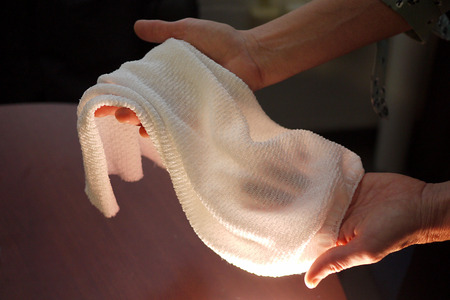
Cotton farmers conclude season
YarnsandFibers News Bureau 2019-02-04 17:31:00 – TexasWhile there may not be a place for some of it to go, Verett and Jerry Butman, General Manager of Lubbock Cotton Growers, agree the season ended with a good yield of most irrigated crops. However, dry land crops suffered from the mostly hot and dry summer.
Kris Verett of Verett Farms said that, “As cotton producers, we are an export market and what we rely on is having a home for this cotton,†Also, “We need foreign markets for that to go to and that’s kind of what’s driving the uncertainty in the market.â€
“We harvested some dry land but most of the dry land did anywhere from a 1/3 to a half a bale, which is not where we would like it to be," Butman said. “A bale plus would be ideal in this area. Irrigated yields were pretty good overall.â€
The implementation and threat of trade tariffs between the United States and China rocked the market, according to Verett and Butman. The 35-day government shutdown also prevented producers from obtaining needed loans.
Butman said that,“They announced the tariffs and that really put things into a tailspin,†Also, “We lost 10 cents [per pound] in about two weeks. It was really about three or four days but it really hasn’t rebounded much since then.â€
Chinese retaliation on the United States for the tariffs is what is suspected of causing the lack of demand, keeping South Plains cotton stuck in warehouses.
Verett said that, “I would say if you had your cotton marketed before this, it was at least a lot more stable and had some place for it to go,†Also, “What we do have left is kind of in limbo with uncertainty as to what the cotton market is going to do. The hope is [the market] will come back up.â€
Butman said that, “I think our cotton will be used but it’s taking a little bit of time.â€
Many South Plains gin are cleaning up the last of their modules as ginning season comes to an end, but the work to sell the cotton that was processed is slow-going due to unresolved trade talks.
Market Intelligence
Ask for free sample Report

experience
Customer Base
dedicated team
Countries Served Worldwide









